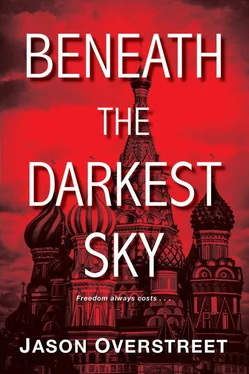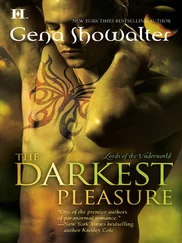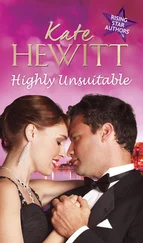The guards had also lowered buckets of water down by rope for us to dip from, hardly an easy task, as we’d been issued one tin cup per five zeks . Those had been our only two meals in forty-eight hours. And they hadn’t replaced the top lamp.
Now, four days into our blind odyssey north, Mikhail’s condition had grown much worse. As we sat there in the dark, he began to mumble bizarre phrases. And the four of us tried our best to make sense of them.
“I want to walk alone and then the chair will do the body bleed, bleed, bleed!” said Mikhail, as I fought back my own pain and tried to interpret his Russian drivel. It was as if he were going from coherent thought to speaking in tongues.
“Body bleed, bleed, bleed!” he continued. “The dove, the dove! Ah, the dove! Ah, the dove! There are five, ten, a thousand. Look at the dove. Look, look, look! Many, many, many, many, many, many! Body bleed, bleed, bleed! We’re gonna ride away to the liver parade. The moon, the moon, the moon! Shoot that frog! Shoot that frog parade and all the flowers and cake! You orange juice engine maker! Kill the chocolate teeth and jelly! Look! Look!”
Mikhail stopped and began to soothe himself with long, drawn-out moans. There was no need to talk to him, for there was nothing we could offer.
Hours later, the guards felt it a good idea to open the hatch and point their hoses down at us. Within seconds there was frigid seawater spraying men, the guards’ version of bathing us.
With bright flashlights flickering on different faces throughout the hold, the guards hadn’t told us to close our eyes, so the first poor souls to get sprayed felt a salt burn that must have been excruciating. Sure, the five of us felt some sting, but having been able to close our eyes and brace for the lathering made all the difference. And it was only after the guards had closed the hatch that we’d dared to even peek at the dark chaos.
Some of the men had already been dead, others, I was guessing, had typhus, pleurisy, or dysentery. And now, whatever filth had washed off of these moaning, bony, infected, withering souls was left for us all to slosh around in until it slowly made its way down the drainage.
“Is everyone okay?” I said to my comrades, the other lamp going out now, leaving the hold black. “Son, talk to me. Are you okay?”
“I think so,” he said.
Boris and Yury answered yes as well.
“Talk to me, Mikhail,” I said, but there was silence.
“He’s dead,” said Boris. “I’m holding his neck. My comrade is gone.”
He began to weep, but it only blended in with the other cries throughout.
“My beautiful comrade is gone,” Boris continued. “I have nothing now. No one! This was my brother. This was my new family. His child is fatherless now. His wife is without her husband.”
“You can visit them when you get out,” I said, the darkness not allowing me to catch even a glimpse of him. “You can be the strength they will need, Boris. And until then, I will be your brother. Stay with me. I will be your family. You hear me, Boris.”
He wept even louder, the madness finally overtaking him. And James, taken by the scene, began to cry into my shoulder. I’d feared that death was becoming too normal to him, but he was still not immune.
“I want to die now,” said Boris, trying to control his cry. “I cannot go on. Mikhail was so young. He was so strong. How could he die?”
“Stop!” I said. “The only thing you can do is accept this hell. We are in hell, Boris. My son here is but fourteen years old. He will never be the same. And I have to accept that. But we can survive! For the love of God, Boris, we can survive.”
“Prescott is right,” said Yury. “You must do as the old man said and think of your parents back in Sweden, Boris. You’ve only known Mikhail for a short while, but your parents have been there your entire life. They will be waiting for you.”
Those words silenced Boris. I didn’t know if he had given up or not, but I knew he was a strong enough young man to endure the agony we all had in store for us, if only he would search deep within himself and try to block out all of the fallen victims. But he’d need to find his focus quickly, for death was trying its damnedest to pay us all a visit.
Moscow, Russia
September 1934
ON A FRIDAY MORNING I LOADED THE FAMILY IN OUR USED MAROON Ford Model A and headed straight to the University of Toilers, where Loretta was scheduled to meet with an enrollment counselor about taking some history courses. She was dead set on learning about the roots of the Bolshevik Revolution, the rise of Lenin, the history of the kulaks, the origins of Stalin’s anti-religion campaign, and the split between Trotsky and Stalin. She also wanted to know what was making so many people from around the world want to discover the Soviet Union. She figured if she could capture the essence of whatever that was, she’d be able to reveal it through paintings. I feared that she would only learn the version of history Stalin had instructed his professors to teach.
Once I’d dropped her off, I headed straight for the Anglo-American School to make sure the twins made it to class on time. I also needed to pay a visit to Mr. Lovett Fort-Whiteman, the science teacher Loretta had gone on and on about.
As soon as we pulled up I spotted him. He appeared to be about my age and was hard to miss with his high cheekbones, angular face, big smile, and jovial demeanor. He was a toffee-skinned man of maybe six feet and was wearing a long-sleeved, belted blue shirt that came all the way down to his knees. The golden belt was a wide, ornamental one, pulled tight to accentuate his narrow waistline and muscular upper body. His tan pants were tucked into his black pointy leather boots, and he sported a white fur hat. I could have sworn I was looking at a Cossack. The only thing missing was a shashka .
This was a man whose appearance screamed classic, proud Russia. Perhaps if he were a native, his flamboyance would be frowned upon as czarist flavored, but as an American, it could only be appreciated as a rejection of the U.S. and a full-throated endorsement of Mother Russia.
“Good-bye, Daddy!” both kids said, hopping out and closing the back doors, book bags in hand.
“Have fun at school!” I said, getting out myself and walking toward Mr. Whiteman, who was engaged in conversation with a blond woman.
“Ronald has an acumen for this stuff, Caroline,” he said. “I mean, he’s digested the periodic table of elements with ease.”
“Well, thank you, Lovett,” she said. “I’ll be sure to tell his father.”
“Have a nice day now!” he said, and she walked away.
“Excuse me!” I said. “I wanted to introduce myself. Name’s Prescott Sweet!” He removed his hat and we shook. “You have my two—”
“Of course!” he said, grinning. “Ginger and James Sweet are your kids. I’ve been wanting to meet you. Fantastic children by the way!”
“Why thank you.”
“Your wife tells me you work at the embassy. Impressive! And it sure is nice to meet another American brother.”
“Likewise,” I said, already certain that I liked him. He was so charismatic and full of energy, to the point where it damn near made me want to run to join the Communist Party right then and there.
“You’d have to work at the embassy to wear a blue suit like that,” he said. “Looks to me to be the finest I’ve ever seen. Expensive! Don’t let anyone from the Politburo see you.”
“Excuse me!”
“I’m messin’ with you. Looks like you got something on your tie there, though.” He leaned in with his sharp nose and pointed. “Right in the middle there.”
Читать дальше











